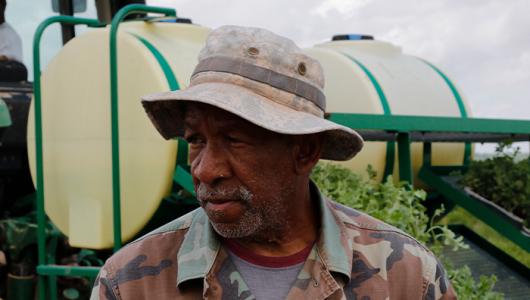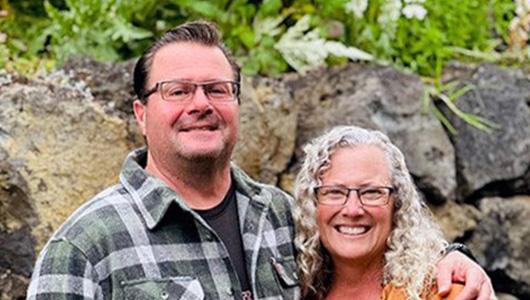Soil is a living and life-giving natural resource. By farming with soil health principles and systems that include no-till, cover cropping, and diverse rotations, more farmers are increasing their soil’s organic matter and improving microbial activity. Knowing this, we sat down with several producers from Idaho and Utah to hear their stories about how adopting different soil health practices improved their operations. Join farmers Rob Geisbrecht, Dan Lakey, Brett Torgensen, Cameron Williams, and Brandon Allen to discover how each has incorporated soil health management systems into their operations to reduce inputs while maintaining or improving the quality of their crops.
How to See What's Possible with Soil Health
Filmed in the summer of 2019
Rob Geisbrecht is a small grain farmer from Aberdeen, Idaho, who uses a 10-acre field as his test plot. It has not been tilled in 10 years and, after terminating alfalfa in the field a few years ago, he has experimented with cover crops and interseeding on the field, learning which practices are most successful on his farm. Rob says, “I want to tell myself the story of what's possible. I can't control market revenue based on what I sell my crop for, but I can completely control what I put into my crop.”
How to Overcome Social Pressure
Filmed in the summer of 2019
Rob doesn’t encounter direct social pressure from neighbors, but they can see his failures. Passing neighbors cannot always see his successes like having 78 earthworms per cubic foot or that he is able to raise 150 bushels of wheat on 10 inches of water. Rob is committed to watching and learning from both successes and failures on his land and doesn’t mind what his neighbors see as long as he is preserving moisture and saving money.
How to Move Away from a Full Tillage Summer-Fallow Small Grain System
Filmed in the summer of 2019
Dan Lakey, Brett Torgensen, and Cameron Williams are all small grain farmers who have replaced more conventional practices with those of a soil health management system. We met with them in a diner in Soda Springs, Idaho, and asked, “How do you move away from a full tillage summer-fallow small grain system?”
Dan answered, “You’ve got to have a ‘why,’ because if you have the ‘why’ that is what will get you through the tough times.”
Dan, Brett, and Cameron talk about the mindset you need to embark on a soil health journey. While technical details like drill settings and pounds per acre of a crop are important, your mindset, or your ‘why,’ is where you begin.
How to Add Diversity to Your System Despite Limited Markets
Filmed in the summer of 2019
Soda Springs, Idaho, is a tough place for crop diversity. Traditionally, the rotation is small grain and summer/chem fallow. Dan talked to us about the challenge of building diversity on his farm. While finding a market for new cash crops (mustard, yellow peas, flax, sunflower) is a challenge, Dan has made it work.
The benefits for his small grain cash crops are lower input costs while maintaining his yields. Apart from new cash crops, Dan’s been fallow-free for three years, which means that when he doesn’t have a cash crop in the traditional summer fallow year, he has a full season cover crop.
How to Innovate with Intercropping
Filmed in the summer of 2019
Brett and Dan discuss intercropping, including flax and chickpeas, flax and peas, and malt barely and peas. Hear their insights and experiences in intercropping, some practical tips, and why they were happy with the results.
How to take a Dirt Vacation!
Filmed in the summer of 2019
One of the things that we often allude to but are not explicit about when we discuss soil health is quality of life. Brandon Allen, a farmer in Lewiston, in Utah’s Cache Valley, stopped tilling several years ago. He no tilled his corn into a field that was in alfalfa for five years and has never looked back. Brandon spoke about the opportunity costs of tillage and how no till improved his quality of life. Find out what Brandon means by taking a “dirt vacation”!
Marlon Winger is a Regional Soil Health Specialist with NRCS. Marlon can be reached at marlon.winger@usda.gov.


